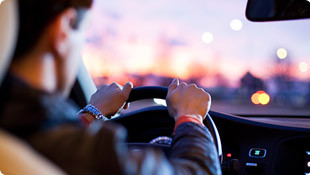Florida State Representative Dane Eagle Arrested for Drinking and Driving in Tallahassee
Dane Eagle, a state representative from Southwest Florida and a rising star in the Florida Republican Party, was arrested early on April 21 for drinking and driving after being observed by police driving badly. According to police, Eagle was seen striking a curb after leaving a Taco Bell parking lot, running a red light and nearly hitting another curb in front of a Papa John’s. When police pulled Eagle over, there was allegedly a strong smell of alcohol coming from his SUV and he had watery, glossy eyes. Eagle told officers that the smell was from other friends that were riding in his car that night and that he was “good to get home”. After refusing a field sobriety test and a breathalyzer, Eagle was brought to the Leon County Jail. According to a statement by Eagle, he could not discuss the case upon advice of his attorney.
Florida has an implied consent law when it comes to taking breathalyzer tests and field sobriety tests. What this means is that if you are driving on the roads in the state of Florida, you are consenting to testing to determine whether or not you have been drinking and driving. However, this does not mean that law enforcement can force you to take a test outside of some very specific circumstances, such as if you are unconscious. Some statistics have shown that up to 40% of drivers arrested for suspicion of drinking and driving in Florida end up refusing testing.
There are additional charges that you can face for refusing a test to determine blood alcohol content. Mainly, this would mean an additional charge on top of the regular DUI charge that could bring more time where a driver’s license is suspended. Evidence that a test was refused can also be used in court to show knowledge of guilt and refusing the test could mean a longer length of time someone’s license is taken away between when he or she are arrested and the time of trial.
With all of these additional punishments, one would think that there would be no point in refusing a test, but that is, in fact, not necessarily true. With no video of a failed field sobriety test and no breathalyzer results, prosecutors could end up having a much more difficult time getting a prosecution in some cases since they would not have evidence of an essential element of the crime, namely a BAC of over .08 and evidence of impairment. This could mean, in some circumstances that they cannot prove the case beyond a reasonable doubt. In some cases, this could mean a plea deal for a much lesser crime, such as reckless driving, meaning much milder penalties.
This does not mean that you are off the hook for any crime related to drinking and driving if you refuse the test, and doing do still involves quite a bit of risk. You could end up still getting convicted of drinking and driving and have a conviction of refusing the test on top of that. Or you could end up with a conviction for refusing the test and have the penatlies for that crime.


